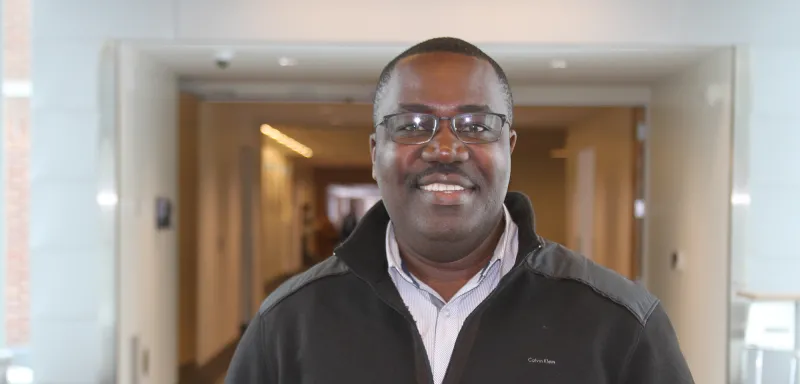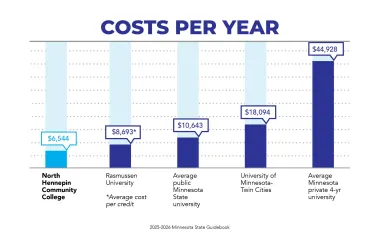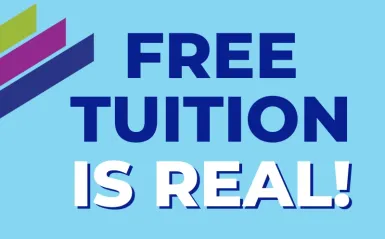What is Human Services?
Human Services professionals have a significant impact on society. They provide for the basic needs of a person, family or community. These needs range from finding resources, such as food and shelter, to assisting with mental health, addictions, or simple life skills such as setting and achieving goals. Human service professionals help their clients attain self-sufficiency in a professional, service-oriented manner.
Human Services Program Highlights
- The program prepares students to provide information, support, care, and advocacy in a variety of human service settings.
- Hands-on learning includes facilitating educational groups, service learning opportunities, and internship experiences.
- Students have the option to enter the workforce or continue their education through a seamless transfer to Metro State.
Career Outlook
After completing the Human Services program, students will have the skills necessary to enter the workforce or increase their career options by continuing their education with a bachelor’s or master's degree.
Potential Job Titles
Associate degree:
- Case Manager
- Program Coordinator
- Youth Worker
- Resource Specialist
- Employment Counselor
- Advocate
Bachelor's & master's degree:
- Program Manager
- Group Home Director
- Substance Abuse Counselor
- Social Worker
- Human Services Program Rep
- Behavioral Specialist
Read more on the Bureau of Labor Statistics
Where NHCC Grads Work
- Avenues for Youth
- Hennepin County Teen Hope Pathway
- Integrity Living Options
- Lutheran Social Services of MN
- Mentor Network
- Methodist Hospital
- Shelter Care for Kids
- The Retreat
Student Perspective

“I have learned an enormous amount about human services and working with people, and I feel confident in my abilities to do so, whether it’s working with victims of trauma, elderly, or those dealing with family problems. The instructors are extremely supportive, pushing us to go out of our comfort zones for us to see what we are truly capable of.”
– Melissa, Human Services Student
Paying for College
NHCC's tuition is among the most affordable in Minnesota.
Financial Aid
- Scholarships are money you don't have to repay
- Grants are money you don't have to repay
Free College Tuition
The North Star Promise scholarship program provides free college tuition to eligible students. Find out if you might be eligible.
Program Roadmaps
Program roadmaps provide students with a guide to understand the recommended course sequence to complete their degree.
Human Services Curriculum
Minnesota Human Services Background Check
Completion of a current Minnesota Human Services Background Check including fingerprints is required for this program. If an applicant has been arrested, charged or convicted of any criminal offense, they should investigate the impact that the charge or conviction may have on their chances of employment and the student's chances to obtain federal, state and other higher education financial aid ( by Minnesota Statute 135A. 157). If the applicant refuses or is disqualified as a result of the background study, the applicant will be unable to successfully complete the requirements of the program.
Get Started
If you're ready to get started, apply to NHCC. If you'd like to learn more, you can visit campus or request information.

